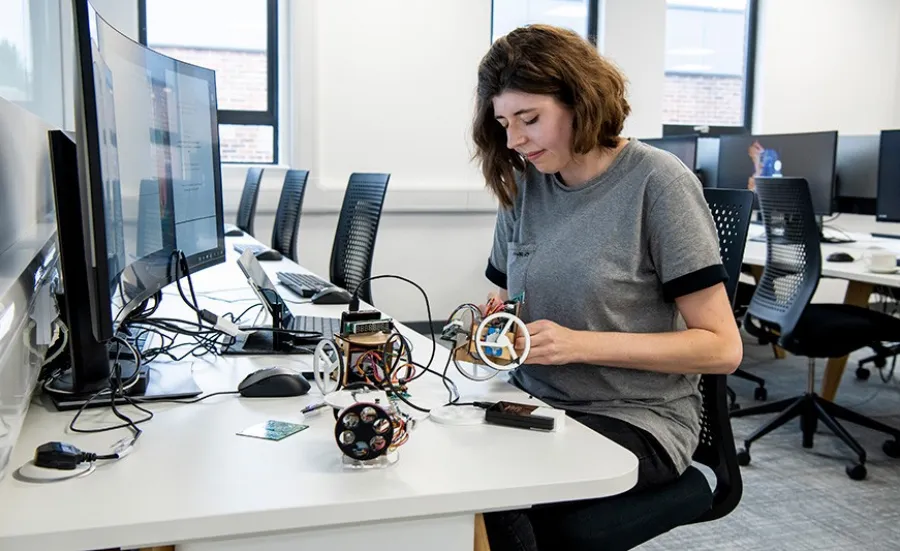Current research degree projects

Explore our current postgraduate research degree and PhD opportunities.

Explore our current postgraduate research degree and PhD opportunities.

The project investigates how distributed sensing systems can remain trustworthy and operational when facing intelligent, coordinated adversaries. It develops an AI-driven trust scoring framework to detect compromised and colluding sensors, enhancing resilience, accuracy, and decision-making in critical defence sensing applications.
Artificial intelligence demands faster, more efficient hardware. This PhD project addresses the energy and latency bottlenecks of modern computing hardware by bringing memory and computation together. Join us in developing neuromorphic devices using foundry-compatible ferroelectric diodes with two-dimensional materials for future computing hardware.
CPUs with hundreds of cores are expected to take over the computing industry from embedded AI devices to servers. While hardware prediction algorithms like data prefetchers greatly improve instruction-level parallelism, they often focus on single-thread performance. This project will explore novel prediction algorithms for manycores and their theoretical limits.
The IGNITE Doctoral Landscape Award is offering to fund PhDs in the natural and environmental sciences.
Future space systems face unprecedented threats from radiation-induced faults and malicious tampering. This project will develop and validate adaptive, radiation-tolerant hardware architectures that secure both functional integrity and cryptographic trust in spaceborne electronics.
This project investigates the microstructural evolution and mechanical behaviour of laser-sintered lunar regolith. Combining advanced microscopy, nano-/micro-mechanical testing, and graph neural network modelling, the research will uncover how glass formation and pore topology control strength, enabling predictive design of next-generation regolith-based building materials.
This project aims to investigate how quantum technologies can transform MRI based dementia research, laying foundations for novel diagnostics. You'll work at the intersection of quantum engineering, neuroscience, and clinical analysis, and lead an interdisciplinary project with the potential to shape future dementia care and beyond.
This project investigates turbulent wakes around buildings and cuboid structures using wind tunnel testing and computational fluid dynamics to develop predictive tools for wind loading and climate resilience.
This project investigates the fundamental unsteady flow physics and surface-loading mechanisms acting on wall-mounted porous cylinders subject to turbulent boundary layers. The goal is to determine how boundary-layer structure, turbulence intensity, and porous geometry influence near-wall flow behaviour, vortex shedding suppression, and fluctuating force pathways.
This project tackles the critical challenge of sterilising narrow channels in medical and space instruments. We will develop a novel hybrid cold plasma system, combining RF plasma with a DBD plasma, for deep channel penetration. Supported by industry expert Aurora, this research adapts space-derived technology to deliver a validated, safer sterilisation process for both space and medical domains.